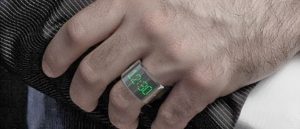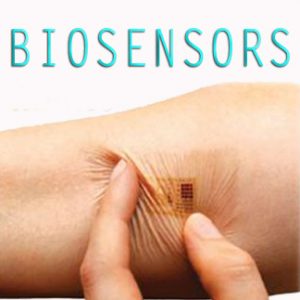Wearable Sensors May Help Identify Early Signs of Disease
Wearable technologies may be able to do much more than monitor a person’s blood pressure or total number of steps each day, according to a new study, which suggests wearable sensors can detect early signs of serious disease.
Wearable biosensors, otherwise known as wearables, are a low-cost technology capable of measuring physiological parameters continuously or frequently. Biosensor technology is a promising approach to monitoring physiological measurements, and these devices could potentially identify significant changes in health conditions. Capable of passive and routine recording, the technology can provide immediate real-time delivery of multiple measurements to the wearer or physician. Software simplifies the technology, so using wearable biosensors requires minimal training and attention from the wearer or the clinician.
In addition to physiological measurements, wearable devices can capture the wearer’s physical activities, such as walking, running, and biking, often in conjunction with a GPS to provide information about the location of the activity.
Wearables can Track Health and Provide Useful Health Information
The newest generation of portable biosensors can measure health-related physiology changes during various activities. The goal of the study, published in PLOS Biology in January 2017, was to investigate the use of portable biosensors in this capacity and their potential role in health management, specifically in the diagnosis and analysis of disease.
The researchers fitted participants with between one and seven commercially available activity monitors. Over the course of the study, the scientists recorded more than 250,000 daily measurements, including participants’ heart rate, skin temperature, blood oxygen, sleep and calories expended collected from up to 43 individuals. The scientists then combined biosensor information with medical measurements to develop a personalized, activity-based normalization framework, which they used to identify abnormal physiological signals and detect disease.
Several participants reported minor cold-like illnesses in the study’s first two years. At the onset of these illnesses, the sensors detected higher than normal readings for skin temperature and heart rate. Blood tests showed an increase in inflammation before symptoms occurred.
 The devices could detect physiological differences, namely variations in heart rate patterns, between insulin-sensitive and insulin-resistant individuals. The researchers also found interesting physiological changes associated with alterations in environment. Participants’ blood oxygen levels decreased during high-altitude flight, for example, and this decrease in oxygen levels correlated with fatigue.
The devices could detect physiological differences, namely variations in heart rate patterns, between insulin-sensitive and insulin-resistant individuals. The researchers also found interesting physiological changes associated with alterations in environment. Participants’ blood oxygen levels decreased during high-altitude flight, for example, and this decrease in oxygen levels correlated with fatigue.
The wearables even detected physiological changes in one person – lead author of the study, Michael Snyder – who later turned out to have Lyme disease. The geneticist never developed the telltale bulls-eye rash that usually precedes the condition, but his smart watch and other sensors detected changes in his own oxygen levels and heart rate. Shortly afterwards, Snyder developed symptoms and received an official diagnosis of Lyme disease.
The researchers concluded by saying the portable biosensors can provide information useful for the monitoring of personal activities and physiology. These devices will likely play an important role in health management and access to care by those traditionally limited by geography or socioeconomic class.
Lead author of the study, Michael Snyder, said in a press release that today’s wearables are “the equivalent of oral thermometers but you’re measuring yourself all the time.” He added wearables might someday act as a “check engine” light that tells the wearer when it is time to see a doctor.
Source
http://journals.plos.org/plosbiology/article?id=10.1371/journal.pbio.2001402
Frank Magliochetti is Managing Partner for Parcae Capital
-
North Andover, Massachusetts
This column of posts is directed at the Healthcare Industry. Frank plans to release new sites dedicated to the industry. Frank currently assists companies who are building, restructuring, transforming and resurrecting there business’s. An example of his client base are, Xenetic Biosciences , IPC Medical Corp, Just Fellowship Corp, Environmental Services Inc., Parsons Post House LLC, ClickStream Corporation as well as having a business talk radio show; The Business Architect on the URBN network.





